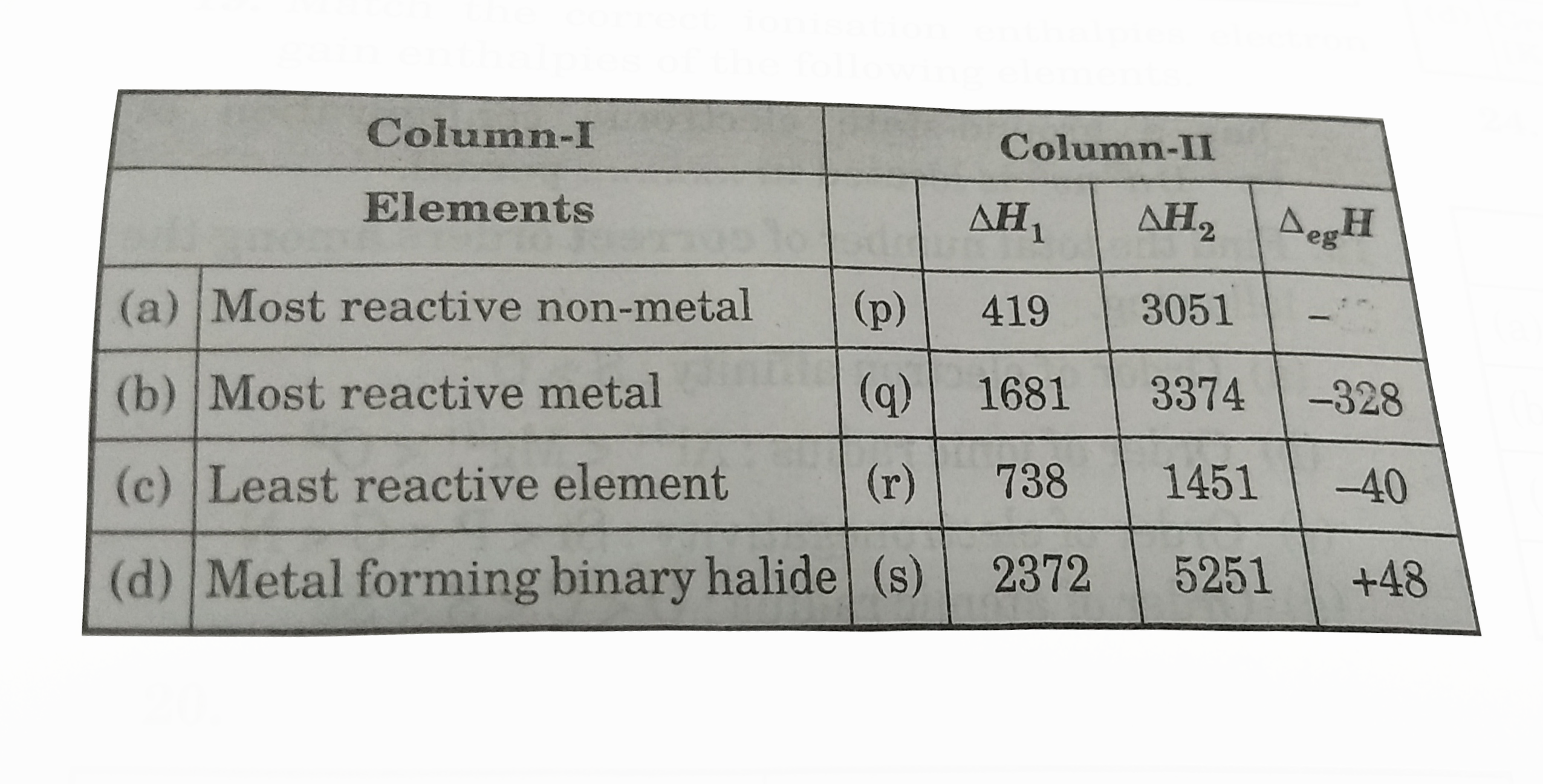What is the significance of the terms-'isolated gaseous atom' and 'ground state' while difining the ionisation enthalpy and electron gain enthalpy?
Hint: Requirements for comparison puroses.
Video Solution
Text Solution
a. Ionisation enthalpy is the minimum amount of energy required to remove the most loosely bound electron from an isolated gaseous atom so as to covert it into a gasous caton is called ionisation enthalpy. The force with which an electron is attracted by the nucleus of an atom is appreciably affected by the presence of other atoms within its molecule or in the neighbourhood. Therefore, for the purpose of determination of ionisation enthalpy, it is essential that these interatomoic forces of attraction should be minimum. Since in the gaseous state,the atoms are widely separated, therefore, these interatomic forces are minimum. Further since it is not possible to isolate a single atom for the purpose of determination of its ionisation enthalpy, therefore, the interatomic distances are further reduced by carrying out the measurement at a low pressure of the gaseous atom. It is because of these reasons, that the term isolated gaseous atom has been included in the definition of ionisation enthalpy.
b. Electron gain enthalpy is the energy released when an isolated gaseous atom in the ground state accept an extra electron to form the gaseous negative ion. The term isolated gaseous atom has already been explained above. The term ground state here means that the atom must be present in the most stable state, i.e. the ground state. The reason being that when the isolated gaseous atom is in the excited state, lesser amount of energy will be released when it gets converted into gaseous anion after accepting an electron. Therefore, for comparison purposes, the electron gain enthalpies of gaseous atoms must be determined in their respective most stable state, i.e. ground state.
|
Updated on:21/07/2023
Topper's Solved these Questions
- BOOK - CENGAGE CHEMISTRYCHAPTER - APPENDIX - INORGANIC VOLUME 1EXERCISE - Exercise very short70videos
APPENDIX - INORGANIC VOLUME 1
- BOOK - CENGAGE CHEMISTRYCHAPTER - APPENDIX - INORGANIC VOLUME 1EXERCISE - Exercise Short146videos
APPENDIX - INORGANIC VOLUME 1
- BOOK - CENGAGE CHEMISTRYCHAPTER - ALKYNESEXERCISE - Exercises (Archives - Analytical and Desriptive Type)4videos
ALKYNES
- BOOK - CENGAGE CHEMISTRYCHAPTER - ATOMIC STRUCTUREEXERCISE - Concept Applicationexercise(4.3)19videos
ATOMIC STRUCTURE
Similar Questions
Knowledge Check
- Question 1 - Select One
Which of the following atom has towest negative electron gain enthalpy?
AOBSCSeDTe - Question 2 - Select One
Which of the following gaseous atoms has the highest value of ionisation enthalpy?
APBSiCMgDAl
What do you understand by the terms
(i) Ionization enthalpy
(ii) Electron gain enthalpy?View SolutionMatch the correct ionisation enthalpies and electron gain enthalpies of the following elements.
 View Solution
View SolutionMatch the correct ionisation enthalpies electron gain enthalpies of the following elements.
 View Solution
View SolutionIn terms of ionization enthalpy and electron gain enthaply , what type of atoms combine to form an
ionic compound ?View SolutionWhat is the electron gain enthalpy for noble gases?
View SolutionWhat is the basic difference between electronegativity and electron gain enthalpy ?
View Solution

